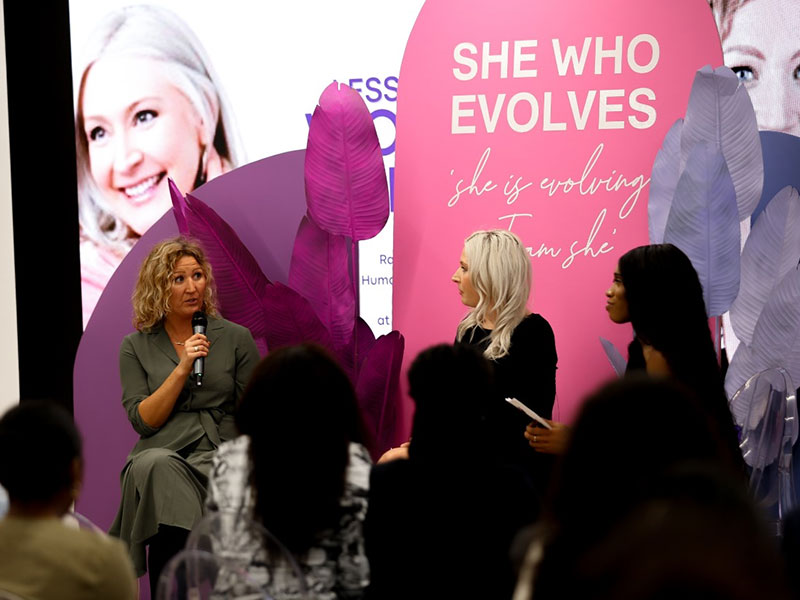
Rosie Guest, Chief Marketing and Communications Officer and Executive Committee Member at Apex Group
It’s a strange time on the gender equality front at the moment, on the one hand the subject is getting a lot of air time and there is a generally accepted and well vocalised mainstream stance across the corporate world that improvements must be made – but the reality, as uncomfortable as it is, is that we are experiencing a regression on gender equality at a macro level.
Financial services is an industry where facts and data rule – and the numbers show that as we live through two major global crises, COVID-19 and Climate Change, it’s women that face disproportionate impacts, leading to a backsliding on the gender equality gains made over the past 100 years.
Of course, many of us felt progress wasn’t moving fast enough… but going backwards? Why is that? Because all indicators suggest that there is a genuine and collective wish from society for change – so what’s holding us back and how do we stop the hard-fought progress we have made so far from being eroded?
Spotlight on the financial services industry
Since the 2008 global financial crisis, the financial services industry has often found itself on the wrong side of public opinion, fighting hard to shed its risk-taking, elitist image and regain public trust. Part of changing that narrative, is to move past the “old boys club” reputation, and to recalibrate as an industry that is more inclusive and promotes diversity of thought to protect against the repetition of past mistakes.
When it comes to women, we’re not talking about a minority, we’re talking about a demographic that makes up just over 50% of the global population yet still there is a major disparity in gender representation.
In 2022, it has become virtually mandatory for firms to join the cacophony of social media posts on International Women’s Day to publicly declare their support for equality. While this is well intentioned, it’s frankly not addressing the issue. We must, of course, celebrate the few female leaders we do have, but not at the expense of masking the broader issue, telling ourselves that we have “done enough”. This doesn’t address the core reasons for there being fewer women at the top, which is ultimately a fundamental issue with mobility and progression.
Transparency is a problem when it comes to financial services and gender disclosure, with businesses typically reluctant to expose their own gaps and failings, but are externally aligning their narrative with a wish to accelerate the pace of change – we often see a result of unintentional genderwashing. Gender inequity is by no means a straightforward issue to fix – but the first step for any organisation is understanding and acknowledging where they are doing well, and where there are issues that need to be addressed – then finding ways to make a change where there is need for improvement.
Companies may have the best of intentions, but are often too focused on trying to make the numbers fit a positive narrative and are not committed enough to implementing sustainable change. For example, if the financial services industry only focuses on overall gender split, the numbers appear to be acceptable, but when firms dig in to the data it shows that typically between 50%-60% of women in the financial services industry are at the bottom of the ladder, holding the most junior roles of the business.
The McKinsey and LeanIn.Org Women in the Workplace report, found that in the US for every 100 men who are promoted from entry-level roles to manager positions, only 87 women are promoted – as a result, men significantly outnumber women at the manager level, and women can never catch up. There are simply too few women at the mid-management level to promote into senior leadership positions.
So while progress may have been made in the past, the infrastructure of our industry is not structured to support continued change in unprecedented times of stress, such as a pandemic, nor is it set up to make the change happen at an acceptable pace because , there is still a hugely disparate gap between men and women at mid-management and senior levels.
The career ladder
There are clear broken rungs in progression before we even reach the glass ceiling across the industry – too often there is only a focus on the highly visible C-suite or board diversity. The work of the 30% Club was an essential first step, but the inequity at the mid management level is a persistent problem and therefore we have to look at our organisations in their entirety, at every level and across every department, to implement a sustainable change plan.
It is essential that firms don’t fall into the trap of recruiting and promoting more women to give the perception of an “equal” workforce – but retain deeper issues of unequal pay. There is still a massive disparity when it comes to the gender pay gap and although it’s a hotly discussed topic, the financial services industry is one of the worst gender pay offenders. The median gap is 37% in financial services and insurance, and the bonus gap is 52%. Firms need to become more comfortable with analysing and understanding this complex issue in order to adapt to a more inclusive and truly equal future for the industry.
Apex Group’s gender split mirrors what we see in the broader financial services industry where research shows that at entry level, over 50% of employees are female, with this figure decreasing to around 35% at middle-management and circa 20% at C-suite level. Put simply – this is not good enough. We are not satisfied simply being aligned with our peers on this issue, we are taking accountability and want to inspire others to do the same, by first understanding the issue and drivers contributing to it – and then putting proactive initiatives and policies in place to bring about long-term change.
Fixing the broken rungs
The good news: the rungs of the career ladder are not irreparably broken – there are concrete steps that businesses can take. We took an honest look at our firm and examined the ways in which women were moving, or not moving, through the business. Although we have plenty of women entering our business, they were not moving through the firm in the same way as their male peers.
This year we launched a Women’s Accelerator Program – a development initiative designed to identify existing high-performing and high potential female talent within our global business, and to erode gender disparity at mid and senior management levels by driving equity for female progression across all levels within the Group. This scheme focuses on elevating female talent by providing program members with the tools and skills to accelerate their progression and reach their full potential. It is not about quotas, or promoting women over men, it’s about nurturing our existing female talent and driving equity in progression.
Over fifty women from 16 locations and 13 departments across the Group were invited to join the inaugural program in 2022. The Women’s Accelerator will create a community through providing discussion forums for members to share experiences, discuss challenges and celebrate successes to nurture development and encourage peer-to-peer learning and mentorship.
The program will equip participants with additional resources to further their careers, whatever path they choose, faster. By sharing experiences with a community of peers, individuals will build a better understanding of their strengths and weakness and ways in which to deal with various situations; ultimately helping them to develop and evolve as professionals.
Another initiative which has also yielded positive results in the Shadow Executive Committee, designed to bring diversity of thought to the leadership conversation at Apex Group. The Committee consisted of a group of 10, high achieving, non-exec leaders, under the age of 40, based across 9 countries. It was a 50/50 split in gender and represented a diverse set of younger senior leaders that were able to bring different perspectives to the C-suite conversation, to challenge the status quo and to demonstrate how diversity can help improve business decisions and drive innovation. In 2020, two of those committee members were promoted to the Group Executive Committee – so for us it’s about the long-term permanent gains, and quality over quantity.
Concluding thoughts
Money makes the world go round, and the financial services space has a powerful influence on the society in which it operates. Never mind that diversity of thought helps to drive innovation and deliver competitive advantage, it’s also a moral issue and the right thing to do. Companies need to commit, and make fact-based and sometimes difficult decisions to change the makeup of their organisation and change the path for gender equality.
Financial services businesses have a responsibility to be part of the change and strive to develop a more inclusive and diverse community. With offices in over 85 locations worldwide, servicing $3trn in assets globally and connectivity with some of the world’s largest and most influential financial services firms and investors, Apex Group has global platform and voice. We believe it is our responsibility to be a catalyst for change and inspire others to do the same. It’s more than a strategy for us, it’s part of our legacy and we feel a responsibility to be bold and try to set the standard when it comes to creating a fair and inclusive work environment.








